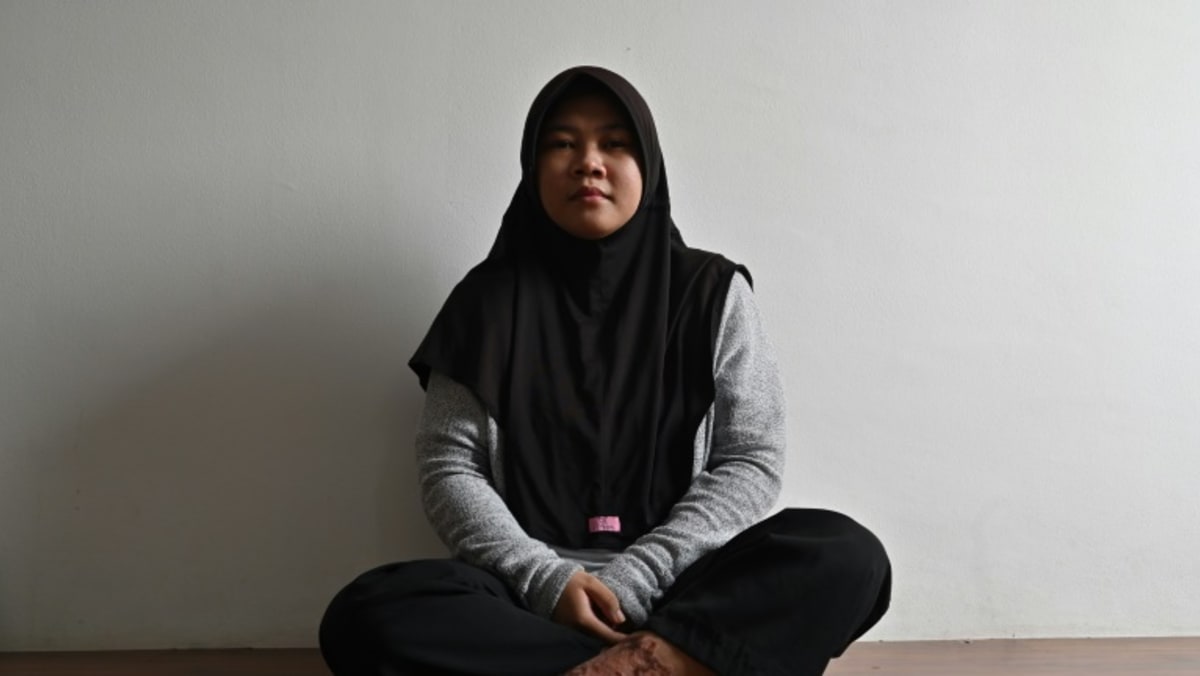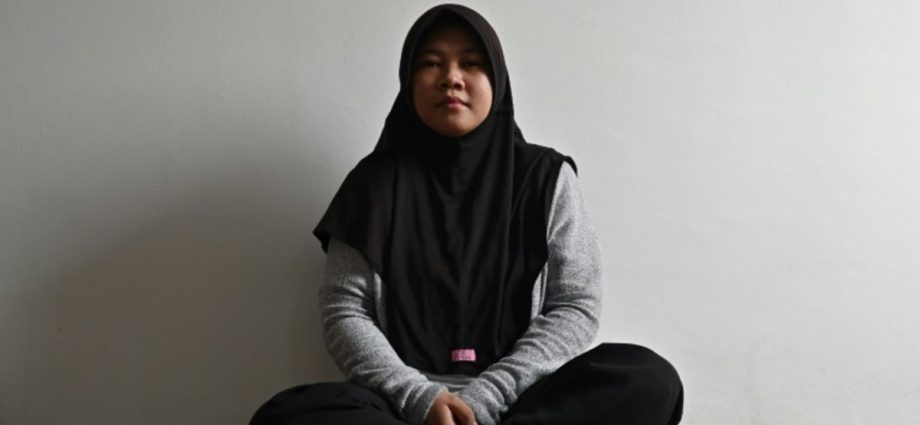
“Demanding protection from other countries while we have not fulfilled the responsibilities ourselves is like a slap in our face.”
Despite the risks and horrifying stories of abuse, women from rural areas like Khotimah feel compelled by poverty to keep moving to big cities for work.
“We owed money in our village. There was no other choice,” she said.
She told AFP the abuse began a few weeks after her arrival in April 2022 when another worker accused her of petty theft.
Khotimah was accused of more theft, which she denied, and the abuse continued until December.
She recalled her employers forcing her to drink their dog’s urine and eat its waste.
“I got hit by multiple people, my boss poured boiling water on me. They later chained me,” she said.
During eight months of work, Khotimah said she did not get a salary except for a 1.5 million rupiah (US$99) payment before she was taken home to Central Java.
“I was afraid the driver would just leave me on the roadside because I no longer looked like a human,” she said.
“LAST TO SUFFER”
Khotimah’s mother found her at 3am (4am, Singapore time), whimpering on the floor with her hair chopped short. Blood and pus were flowing from the wounds on her legs. Both her arms were peppered with cigarette burns.
“She was crying soundlessly. I woke my husband up and told him ‘Our child is home, but she is dying’,” Khotimah’s mother, Eni Sopiyah, told AFP.
The family called the police.
The suspects were arrested while Khotimah was transferred to a Jakarta hospital where she spent four months recuperating.
While she is still physically recovering, she pledges to carry on fighting for justice for herself and other maids.
With the help of rights group Jala PRT, she is filing rape charges against her employer under sexual abuse and human trafficking laws.
“I hope the domestic workers’ protection law will be passed immediately so there will be no other Khotimah,” she said.
“Let me be the last to suffer.”

